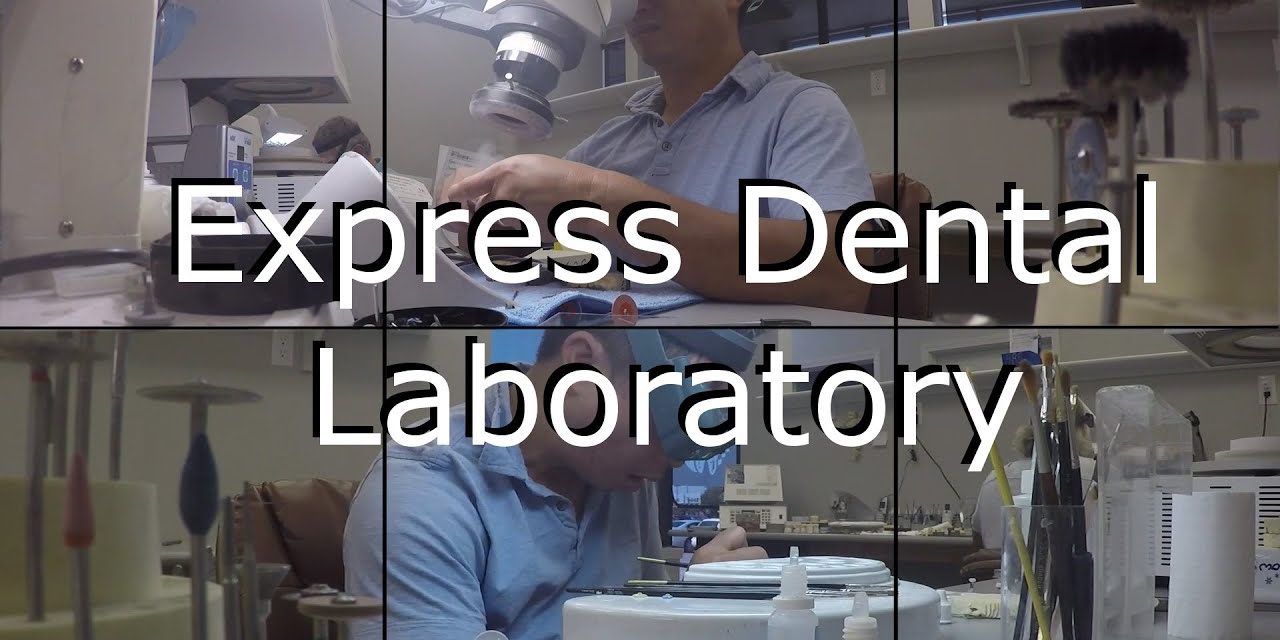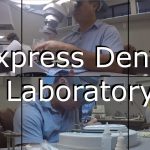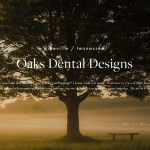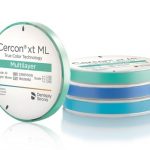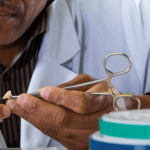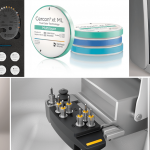INTERVIEW WITH TRA’ CHAMBERS
7 December 2019
“Focusing on Turnaround”

Digital technology has made it possible for Tra’ Chambers to build-up Express Dental Laboratory – producing great results in a timely fashion.
Express Dental Laboratory in Norman, Oklahoma, opened its doors six years ago with just one worker – Tra’ Chambers. He’s now CEO of a successful lab business employing technicians and other staff numbering about 23, all thanks to harnessing the power of digital technology.
Tra’ studied biology and chemistry in college, with an eye to going into the medical or dental field in some capacity. His first job was with a pharmaceutical company, making clinical trial drugs, but he soon realized he would need more qualifications to progress. So he looked around, shadowed some dentists and landed a job with a local practitioner as a dental assistant. There he learned not only the clinical side of the profession but also began to take an interest in the business and workflow side.
When one of the associates decided to move on and set up his own practice, he invited Tra’ to go with him and work as his dental assistant/practice manager. “It grew from there and the practice went from two to three, then four and eventually 11 operatories,” he said. Tra’ was managing the practice, responsible for training and workflow, and it was then, in about 2009, that he began to be frustrated by working with his local laboratories.
“They would come, collect the cases and drop them back after about three weeks,” he explained. “We were scheduling four weeks out so we were unable to deliver crowns or prosthetics in under a month. In that time teeth move, things change and maybe the crown won’t fit. If there was a problem we might have to wait several more weeks for a replacement, and this was causing us a problem with cash flow as well as quality and fit issues.” They found one lab was sending the work all the way to China!
When they finally found a local lab that they could talk to, all was well but, “These guys were using traditional techniques and by now we were doing 90 crowns a month – double what they had been doing before. They couldn’t keep up. The quality was better but the turnaround wasn’t,” he said.
Around that time Tra’ and his colleagues were introduced to the CEREC system
Around that time Tra’ and his colleagues were introduced to the CEREC system, and the dental assistants in the practice could start to make crowns in the house by the next day. These were mostly straightforward, lithium disilicate posterior teeth, and the staff soon got up to speed and were able to deliver on the same day. Tra’ was keen to learn to operate the system himself, so soon he was turning around five or six crowns a day. As the technology advanced, they bought the CEREC Omnicam and Tra’ was working on that alongside his practice manager role. “It was great because previously it had been much more technique sensitive,” he said.
When Sirona brought out inLab, Tra’ was really excited. “Now we could do bridges, implant abutments, etc because previously we’d had to do traditional impressions for these and send the work-out,” he said. But no labs in the area could receive digital impressions.
“I saw the niche and I knew that crowns could be made in a day or two using the Sirona technology,” he said. “I was ready for a change.” So, with his experience of starting a new business, and of making crowns using the CEREC system, he approached the bank and got a loan to start his own lab. “I’d budgeted what I thought I needed for the equipment but then I found that inLab was about half the price of the dentist’s system. So I bought two. It was awesome to be so under-budget. It allowed me to do twice as much and I also had a backup system if one went down.”
He recruited his brother to do some sales work, rented an office space and got started. “I worked on crowns all day,” he said. He had good support and training from Sirona and found the system easy to pick up. Buying two items meant he got extra training and he quickly got up to speed.
The business went so well that he took on a ceramist and it’s just kept growing from there. Six years on they are in a new facility, have 23 staff with a variety of specialist expertise and are now a full-service lab. Three departments cover fixed prosthetics, dentures and orthodontics, all with specialist technicians. Express Dental Laboratory offers both digital and analog workflows, as certain clients still require specialist and time-consuming work, but increasingly newly recruited technicians are being taught to use the inLab system and may combine the two types of workflow, for example by designing a gold crown but using the mill rather than casting the gold. “The analog work is still about 60% of what we do,” said Tra’, “but it’s getting rarer. I don’t know how to do the analog stuff myself!”
The business went so well that he took on a ceramist and it’s just kept growing from there.
“We’ve expanded our offering from that single unit crown,” he explained, but what he has done that’s different from the competition is to focus on turnaround – the one thing that frustrated him from the customer perspective. “When I started I found most labs focused on either quality or price. No-one focused on turnaround, so I figured that should be my approach. We can get good results but without the need to wait. Our technicians now specialize in what they are good at – model work, design, milling and so on, so we can produce very quickly.”
He added: “We started to offer a three-day turnaround and saw a tremendous response. We offer an expedited service because the technology enables us to do good work fast. And if we can get patients treated faster, then more patients can be treated, leading to busier schedules and dentists can get their money back from the insurers faster. It’s a win-win. Errors can be seen and picked up and it’s easy for the dentist to do a quality control check of their scan before sending it to the lab.”
“The efficiency that the CAD/CAM technology brings is fluid and the results are predictable. There are so many opportunities for error in the analog process, but with a digital workflow there are not so many data transfers so it’s much more accurate, efficient and reproducible,” said Tra’. “Sirona inLab is now the focal point of our lab and it has changed the way we think about how we manufacture. It’s about getting the treatment done in a timely fashion.”
Tra’ is still involved in manufacturing on a day-to-day basis, though his time is increasingly spent on running his growing business. “If I had known when I started out what I know now, I would have been intimidated by what I was taking on, but I love what I do and every day is a new adventure,” he said.

